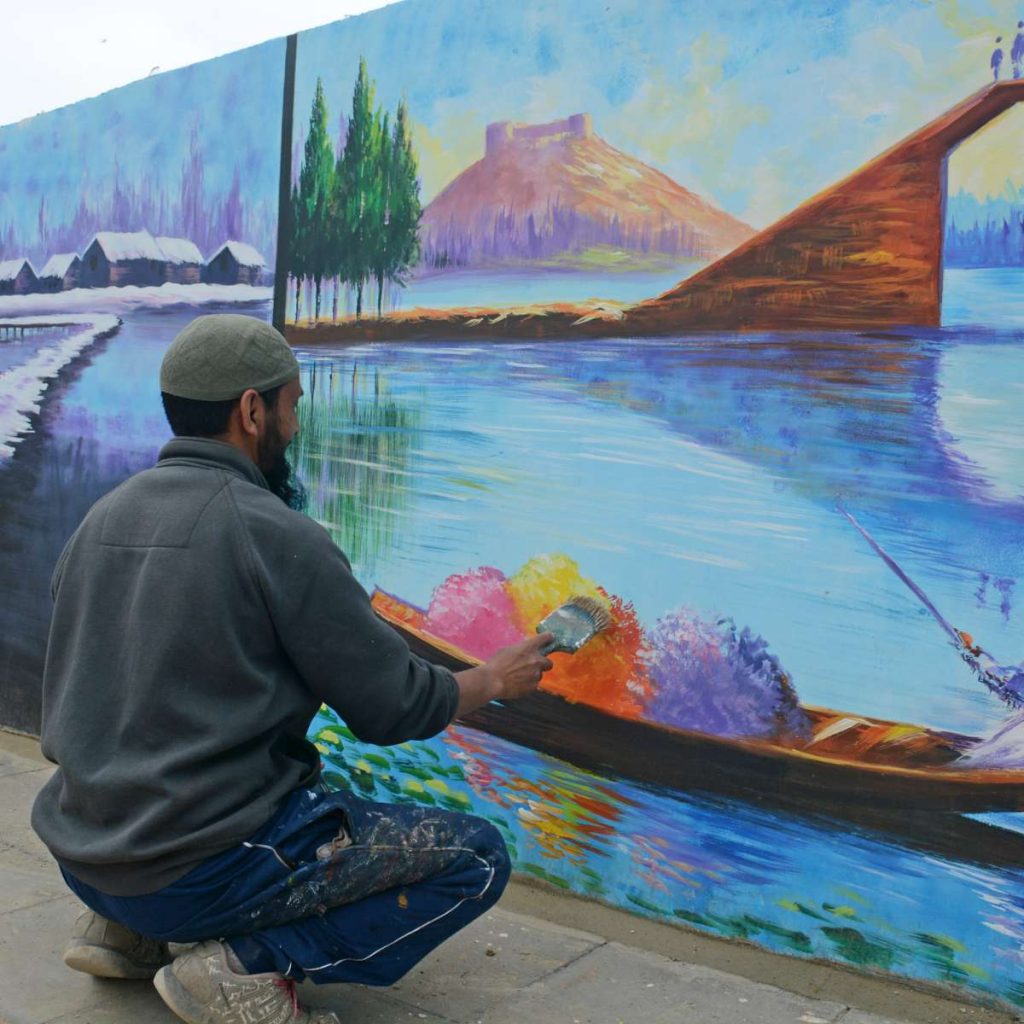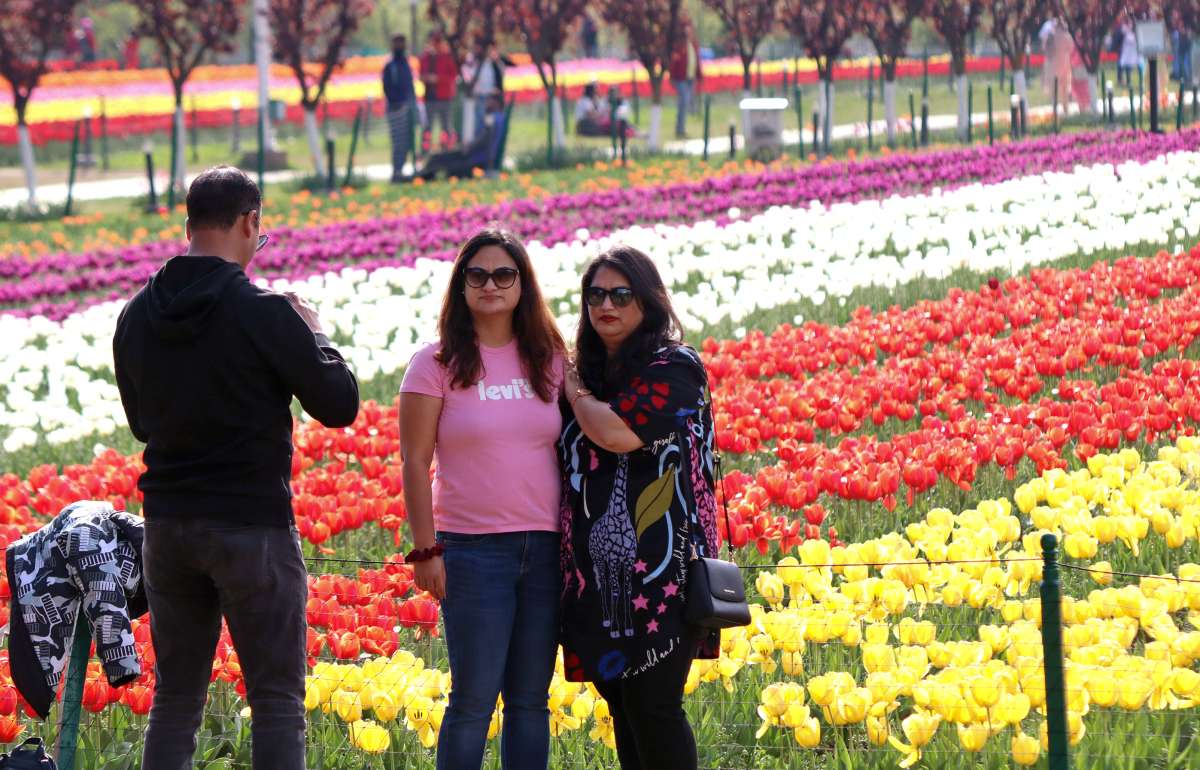Kashmir, India’s Crown Jewel, is on a sphere of growth. For the first time in its history, a record 18.8 million tourists visited the union territory of J&K in 2022. For the region which was mired in conflict and in the limelight for not-so-good reasons earlier, this meet presented a significant opportunity to show the world that it has much more to offer from scenic beauty to rich cultural heritage.
Abundant in its natural beauty and cultural diversity, Jammu & Kashmir (J&K), also known as the Crown of India, hosted a G-20 tourism meet in the picturesque city of Srinagar in May 2023. For the region which was mired in conflict and in the limelight for not-so-good reasons earlier, this meet presented a significant opportunity to show the world that it has much more to offer from scenic beauty to rich cultural heritage.
For the first time in its history, a record 18.8 million tourists visited the union territory of J&K in 2022. According to some, this has much to do with the revocation of Article 370, which granted the erstwhile state its special status.
Since this landmark move, various measures have been taken to integrate the state with the rest of the country, which helped unveil various opportunities for the region. For instance, why travel all the way to Switzerland to shoot a film when we’ve got our own ‘heaven on earth’ right here? However, it appears that a majority might be oblivious to this fact, and so to boost film tourism in the region, nearly 300 unexplored destinations are expected to be promoted. Film producers are also being offered various incentives e.g., they will be provided a special grant of 50% of the film’s production cost up to INR 50 million if their story/script is based on the union territory.

Further, if employment opportunities are generated for local talent, additional subsidies will be given. To facilitate this, the government has ensured the setting up of a proper system, while permission and other regulatory requirements can be achieved through a one-stop system.
A strong focus on strengthening infrastructure in the region is expected to significantly boost socio-economic development. To link the geo-strategically critical Kashmir valley with the rest of India, various connectivity projects are underway; for instance, the 272-km Udhampur-Srinagar-Baramulla Rail Link (USBRL) project is finally slated to be complete by February 2024. Mega development projects to improve road connectivity have been sanctioned and include the construction of new corridors, tunnels, and bridges. Reliable connectivity with the rest of mainland India is expected to facilitate the free movement of agricultural goods and help about 70% of the valley’s population, whose livelihood is dependent on farming.
An infrastructure project to build a mall and IT tower in the city of Srinagar by a Dubai-based developer marks the first FDI in the valley. About 350 modern health infrastructure projects are also underway and include the establishment of medical colleges, trauma centres, and super-speciality hospitals.
To boost industrial growth, the government has called to set up industrial estates and a single-window clearance system along with an investor facilitation cell to improve the ease of doing business and connect industries with markets globally. The introduction of the J&K Industrial Policy (2021) has further attracted investment opportunities worth INR 19.24 billion.

Holistic development plans are in the pipeline to accelerate the growth of the agriculture and horticulture sectors which are crucial to growth in J&K. These include constructing high-density nurseries and creating 67,000 metric tonnes of controlled atmosphere storage space with a full value chain and aggregation network. Post-harvest management initiatives envisaged under various schemes will likely reduce production and other related losses.
As many may already be aware, the region is famous for its unique handicraft products such as the rich Pashmina shawls, silk carpets, paper mâché, and walnut carvings – however, like most heritage craft industries, the handicraft industry in Kashmir took a big dent during COVID-19. To revive the industry, the ‘Craft Safari’ series was launched to help to connect the world to local artisans, understand their grievances, build awareness of their craft, and promote them. To empower artisans and prevent them from abandoning their craft, the ‘Karkhandar Scheme’ was announced to upskill them and offer financial aid. To attract young people and aspiring entrepreneurs to these traditional arts, possibilities are being explored for companies to collaborate with the J&K Entrepreneurship Development Institute.
For the current financial year, a huge sum has been allocated for the union territory, with a focus on employment generation, women empowerment, and social inclusion. Under the Mumkin scheme, the local government has helped provide employment to youth aged 18-35, where small commercial vehicles are provided at reasonable subsidies. Similarly, thousands of people have gained employment under the J&K Rural Employment Generation Programme. A self-employment scheme has also been introduced to provide more opportunities.
While this is just the start of possibly bigger and better things to come, it is by no means an insignificant feat to make up for the past few decades. With a focus on good governance, tourism, sustainable agriculture, skill and infrastructure development, and power sector reforms, economic growth in J&K is likely to continue and increase supported by the significant untapped potential it has to offer.









